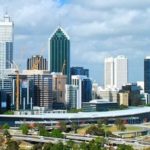This is the last in our ‘words matter’ series by Douglas Bartlett, Manager Asset Planning, City of Kalamunda, and member of the Perth City Chapter. Is this how you would interpret growth and prosperity for all? Doug welcomes your responses and alternatives.
 Growth is a concept based on natural systems and leads to efficient forms (such as living creatures). Aside from the biological growth, there is also the ability for an individual to grow in experiences, learning, and skills, which may or may not have limits. Growth in populations can be geometric and uncontrolled, limited by resources with ‘natural’ controls via food, space, reproduction rates, predators.
Growth is a concept based on natural systems and leads to efficient forms (such as living creatures). Aside from the biological growth, there is also the ability for an individual to grow in experiences, learning, and skills, which may or may not have limits. Growth in populations can be geometric and uncontrolled, limited by resources with ‘natural’ controls via food, space, reproduction rates, predators.
Using the context of the growth of the living creature, can we change the language or philosophy behind AM ‘Growth and Demand’ such that our community and its assets is considered to be a living organism which grows to create its most efficient form? This implies that the eventual form is matched to the limit in resources. This language would replace the mathematical population growth models, that are theoretically without limit. In our modelling of course, we must place a conceptual limit to growth because at some level we are unable to imagine the size of the population.

Mexico water shortage. Filling up from water trucks.
Prosperity can include concepts of equity, opportunity for a job, a business, to eat, learn, have shelter, recreate. Prosperity is a present state measure and is measured against historical states or other communities. There is no future focus so if we adopt ‘Prosperity’ as the objective:
- we may struggle or suffer from a lack of perspective of future impacts/threats, and
- we may not be able to react to change.
When considering the change of word from growth to prosperity we must also remember that AM looks at ‘Growth and Demand’ not just growth. ‘Demand’ introduces an economic perspective whereby the price increases until the demand and price are balanced within the marketplace. In terms of AM this means people will demand more (quantity, quality, time, less cost) until a point that the service exceeds their desire to pay for it. But in reality the point we try to each is where people become comfortable (with what they have) and no longer seek or expect more. Also the community is not directly exposed to the cost of things, as they pay taxes and receive services but there is almost no direct connection between them. So: we are trying to determine the demand for services, and demand is met once people become comfortable.
Putting these ideas together: growth in a living organism, ensuring we keep a future focus, and demand reaching a level of comfort: the service provided by assets needs to be modeled so that the service is expected to grow and change form, metamorphosing into a new service that is more efficient for the community: The new butterfly effect.

The concept of growth and prosperity for all suggest creating a balance between material and social wealth. Social wealth speaks to the quality of life enhanced by developing sustainable public infrastructures around community values, expectations, and priorities.
Too often developing countries are ignoring these basic rules pursuing Public-Private Partnership in building community infrastructures. We see modern toll roads while the majority still drink contaminated water, or poorly developed water distribution infrastructure while many rely on rainwater stored in open tanks providing a breeding ground for mosquitoes.
Thanks Silbert. And to this we may add that lack of balance in this way is not confined to developing countries although it is perhaps more easily observed there. In developed countries we have a lopsided focus on economic rather than social infrastructure.